A mouth guard is designed to defend your enamel, gums, and jaw during sports and teeth grinding. Its primary function is to soak up and disperse effect forces, minimizing the risk of dental injuries and fractures. Mouth guards also help with preventing concussions, decreasing the probability of jaw accidents, and even addressing problems associated with bruxism.
This guide navigates through the concerns and improvements in mouth guard generation, assisting buyers in making a knowledgeable choice while selecting suitable mouth guards.
Table of Contents
Overview of the global mouth guard market
Types of mouth guards
A guide to buying ideal mouth guards in 2024
Summary
Overview of the global mouth guard market
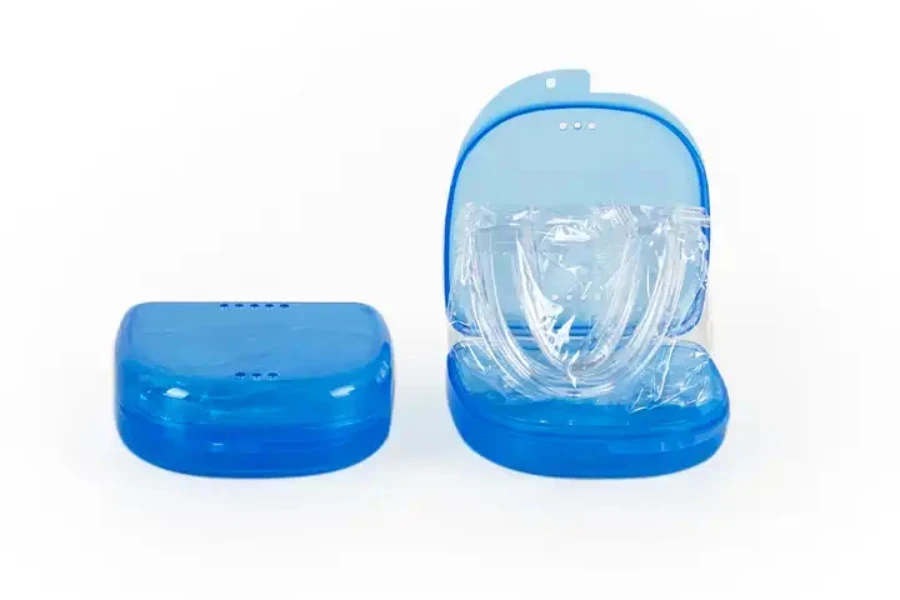
According to Fact.MR, the global market for mouth guards is experiencing a sturdy increase, with a valuation of US $2.68007 billion in 2022 and a projected surge to US $7.47384 million by 2032, showing a compound annual growth rate (CAGR) of 10.8%. This escalating demand for mouth guards is fueled by heightened consciousness of the importance of oral safety during sports activities, the growing occurrence of dental injuries, and the increasing prevalence of conditions such as bruxism.
North America, Europe, and Asia-Pacific are witnessing the very best demand, pushed through a surge in sports participation, developing health attention, and the proactive adoption of preventive dental care measures.
Types of mouth guards
1. Stock mouth guards
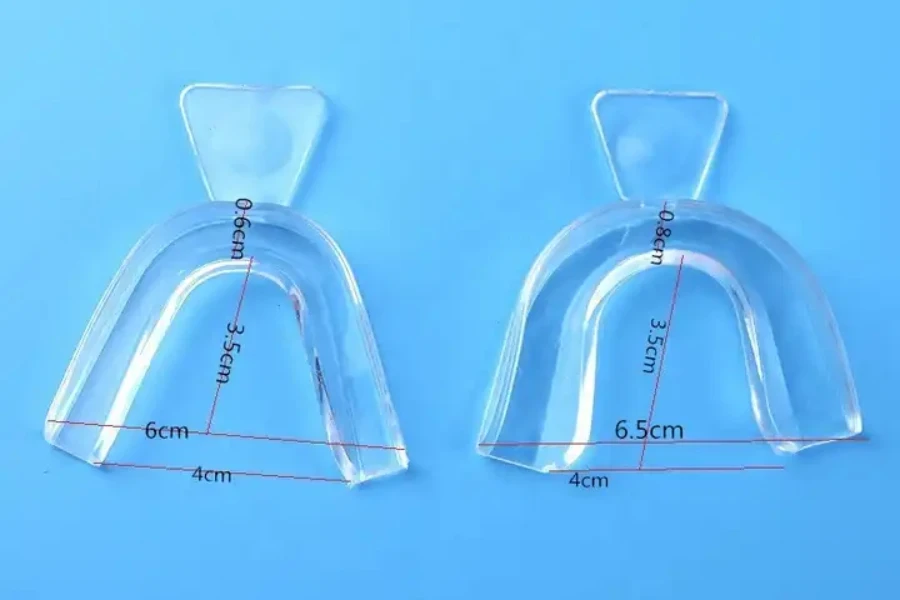
Stock mouth guards are pre-formed, mass-produced protectors that are readily available in normal sizes. These guards are often the go-to preference for novices, individuals on a budget, or those seeking a temporary answer for oral safety.
Their one-size-fits-all layout limits the extent of comfort they provide. Since they lack customization, users may additionally discover it hard to get a good fit, doubtlessly affecting their comfort during use. Stock mouth guards usually last for 6 to 12 months.
2. Boil and bite mouth guards
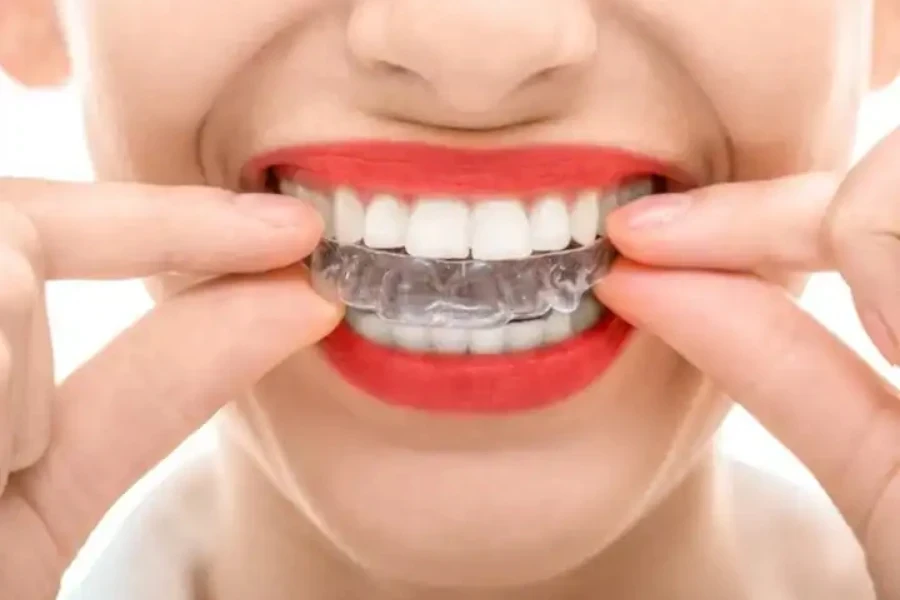
Boil and bite mouth guards stand out for their adaptability. They are crafted from thermoplastic fabric that softens when boiled and then molds to the consumer’s tooth. This kind bridges the gap between stock and custom-match guards, providing a more personalized shape than pre-shaped alternatives.
They offer advanced sturdiness, commonly lasting between 1 and 2 years. Athletes taking part in numerous sports activities, especially at the novice or intermediate levels, frequently opt for boil and bite guards. The molding method permits users to acquire a higher match, enhancing comfort for the duration of wear.
3. Custom-fit mouth guards
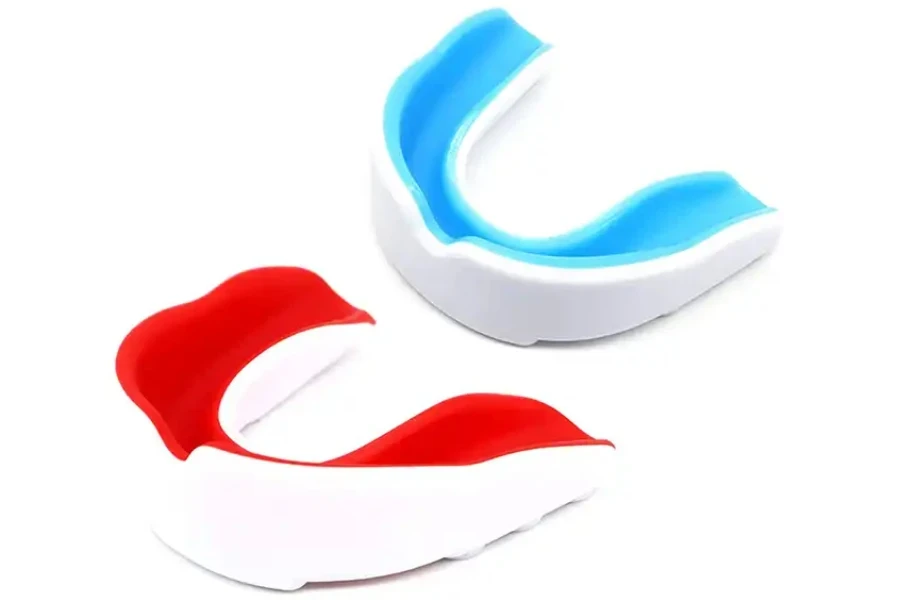
Custom-fit mouth guards represent the highest level of oral protection, being tailored to match a person’s unique dental shape. These guards are crafted by a dentist primarily based on specified impressions of the affected person’s teeth. They provide exceptional comfort, fit, and safety.
Custom-fit guards are a favorite amongst expert athletes, individuals with particular dental conditions, or anyone prioritizing pinnacle-tier protection. They have an average lifespan of 3 to 10 years, depending on the fabric used and the right upkeep.
A guide to buying ideal mouth guards in 2024
1. Consider thickness
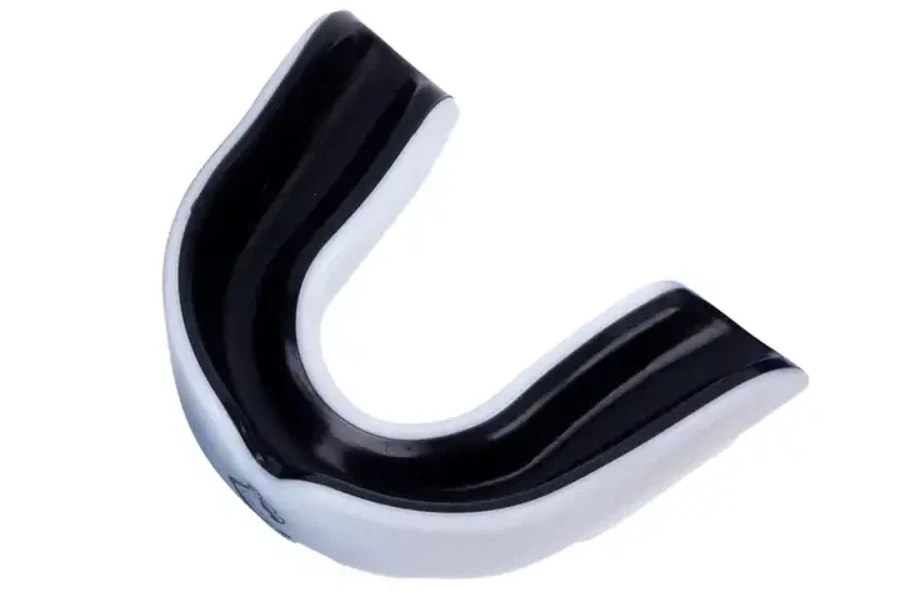
The thickness of a mouth guard influences its shielding capabilities and comfort. Typically, mouth guards are available in various thickness tiers, starting from 1.5 to 4 millimeters. The preference for thickness depends on the intended use. Thinner guards are frequently preferred for mild-touch sports activities, while thicker options provide stronger safety for high-impact activities.
Athletes conducting sports activities with a higher risk of harm might also choose a thicker mouth shield to soak up and disperse the effect forces successfully. Conversely, people seeking a mouth defense for nighttime enamel grinding (bruxism) would possibly find a thinner, more discreet choice to be more snug in the course of sleep.
2. Pick the right material
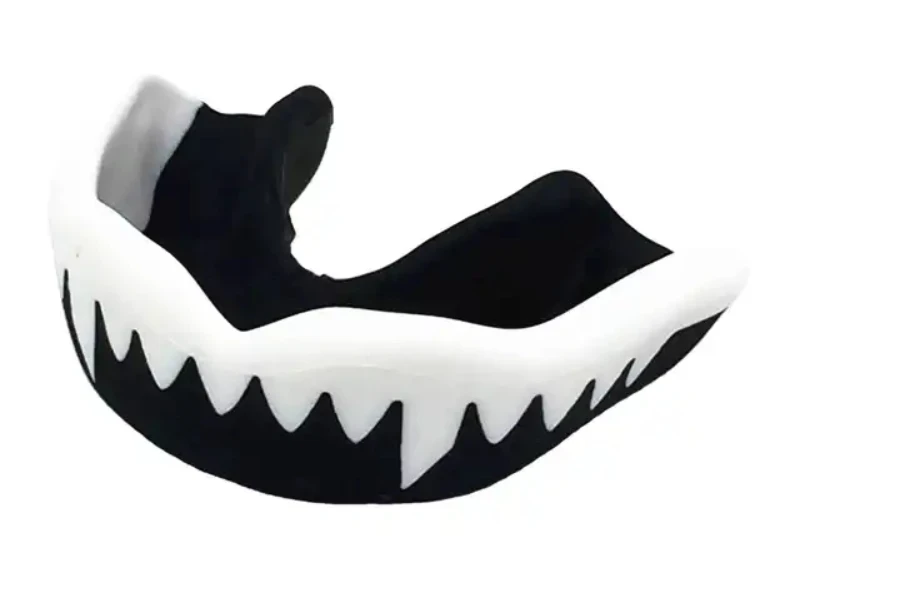
The material used to make a mouth guard notably affects its performance, comfort, and sturdiness. Common substances include ethylene vinyl acetate (EVA), polyurethane, and silicone. EVA, a thermoplastic cloth, is broadly used for its flexibility and shock absorption properties. Polyurethane offers stability between flexibility and sturdiness, making it suitable for numerous sports.
Silicone, which is acknowledged for its consolation and biocompatibility, is frequently used in custom-suit mouth guards. The preference of material should align with the intended use, thinking about elements including effect resistance, flexibility, and the users’ comfort preferences.
3. Look at the cost
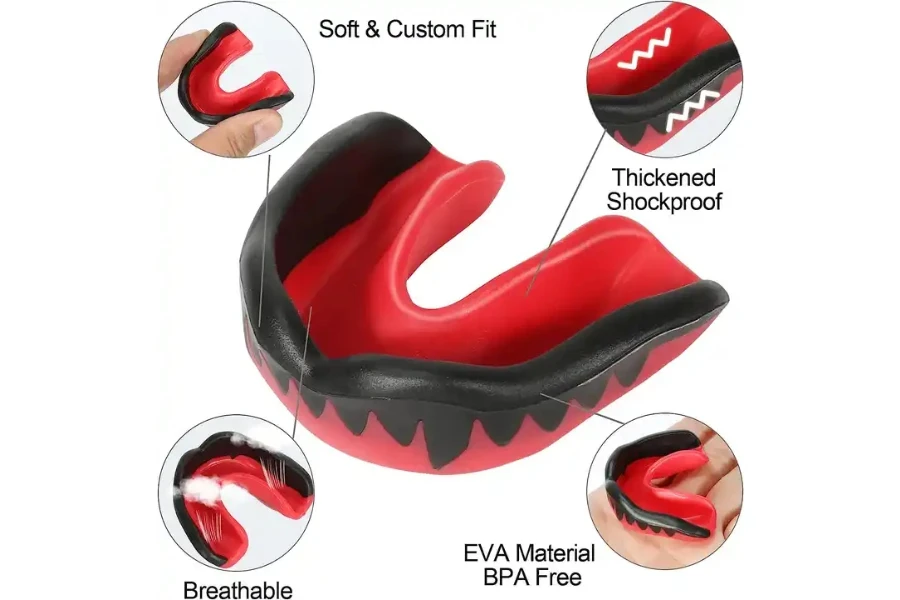
Mouth guards are available at different prices depending on the used materials, customization, and capabilities. Stock mouth guards, being mass-produced and less personalized, are commonly the cheapest, ranging from US $5–30.
Boil and bite mouth guards have a good fit and a high-quality quality range from US $20–80. Dental professionals craft custom-fit mouth guards for specific fit and premiere protection. They start from US $100–600.
4. Select the right size and fit
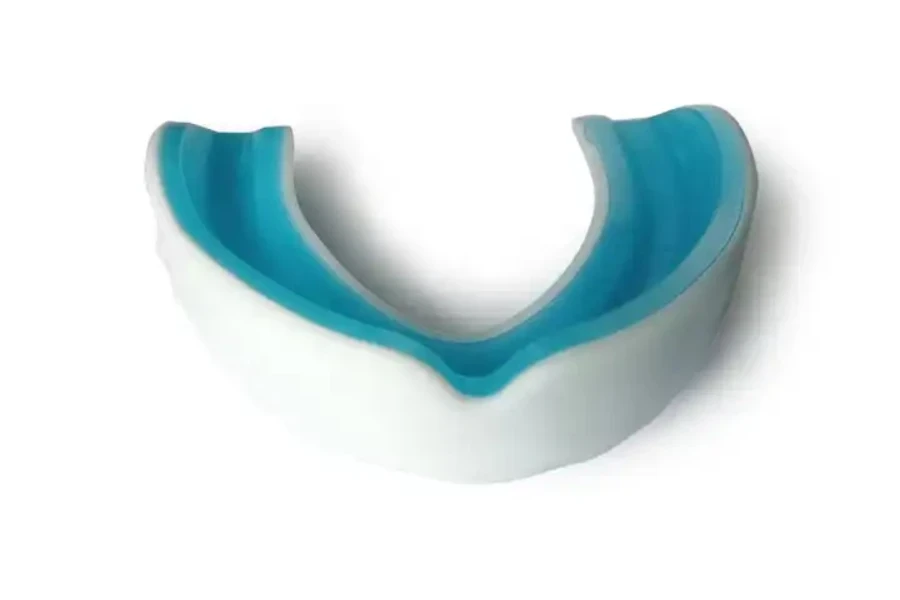
Selecting the proper size and attaining the right fit are essential for the effectiveness and comfort of a mouth guard. Ill-fitting mouth guards might not offer the ideal protection and may be uncomfortable to put on. Manufacturers frequently provide sizing charts that guide users to select the right length primarily based on their age or dental measurements.
Boil and bite mouth guards offer a semi-custom healthy mold to the consumer’s enamel after boiling. Custom-healthy guards provide the best level of precision, optimal fit, comfort, and protection. A well-fitted mouth guard has to cover the enamel securely, consisting of the molars, without impeding breathing or speech.
5. Prioritize comfort
An uncomfortable mouth guard is less likely to be continuously used. Boil and bite mouth guards provide a better fit than stock guards, contributing to improved comfort. Custom-fit guards, being individually crafted, provide the very best degree of comfort as they precisely conform to the user’s dental shape.
Comfort is subjective, and customers prioritize stability over safety and simplicity of use. This makes sure that the mouth guard does not cause infection, interference with breathing, or soreness in prolonged wear.
6. Consider durability
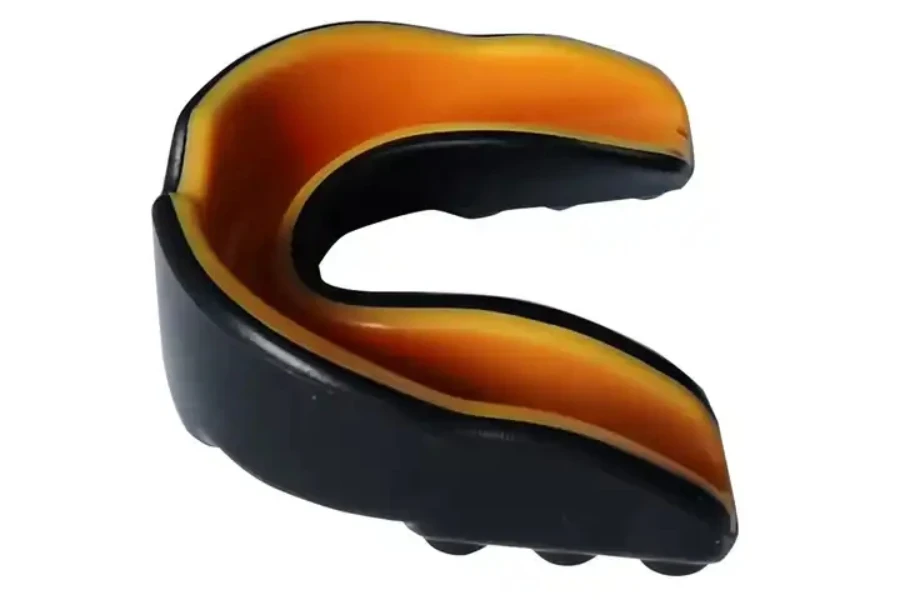
Stock mouth guards are less sturdy and normally last 6 months to 1 year. Boil and bite alternatives have better fabric and can bear everyday use for about 1 to 2 years. Custom-match guards, crafted from quality materials and tailored to the user’s precise needs, offer superior durability. They regularly last between 3 and 10 years.
Proper care and maintenance, which include everyday cleaning and storage, extend the lifespan of a mouth guard.
Summary
The search for the perfect mouth guard in 2024 needs a nuanced understanding of thickness, materials, price, size, and durability. Whether they are for athletes prioritizing impact resistance or users combating tooth grinding, the alternatives abound.
For a comprehensive exploration of modern mouth guards, visit Chovm.com.




